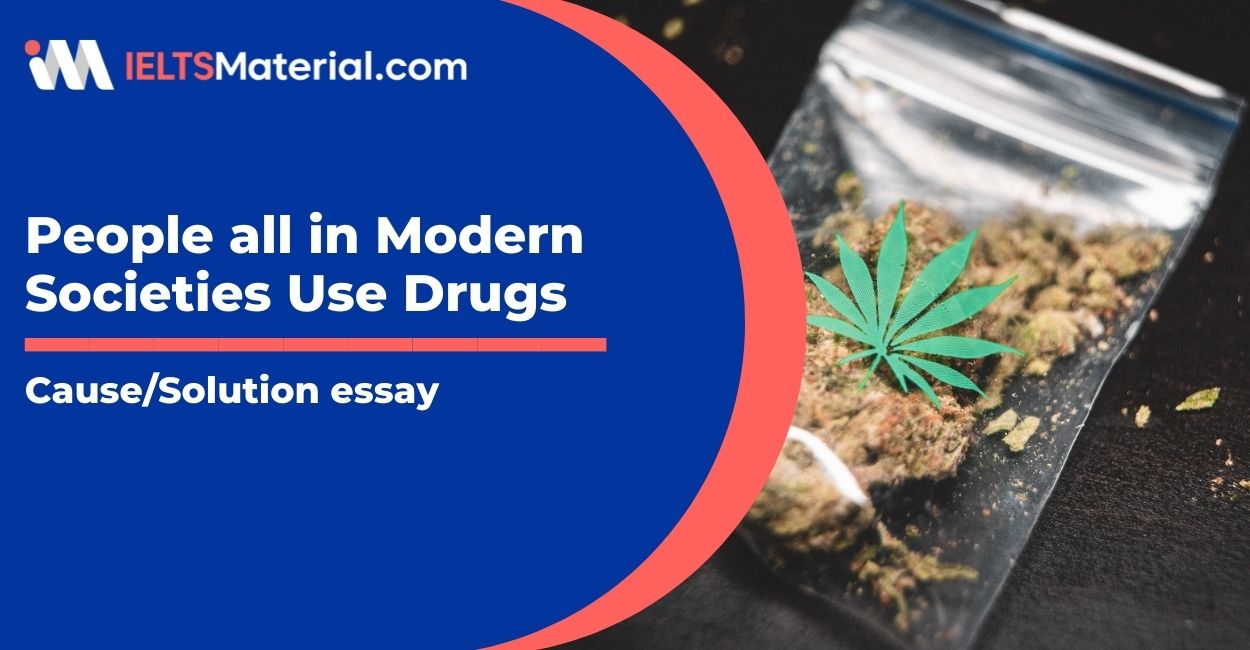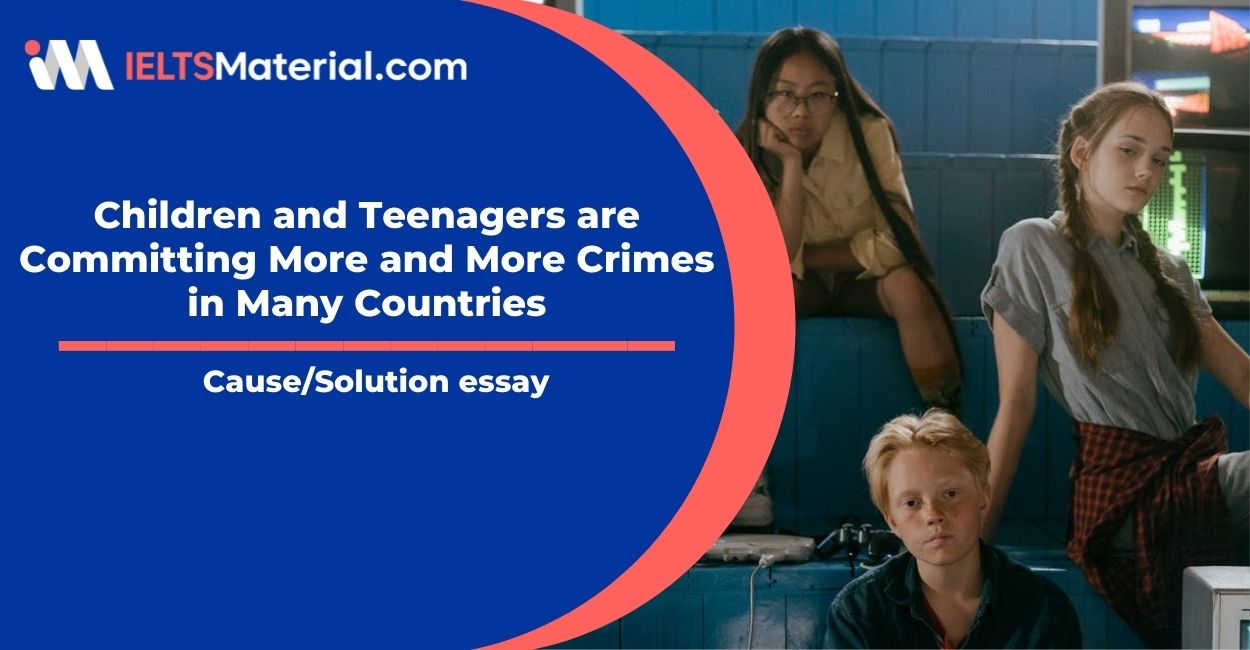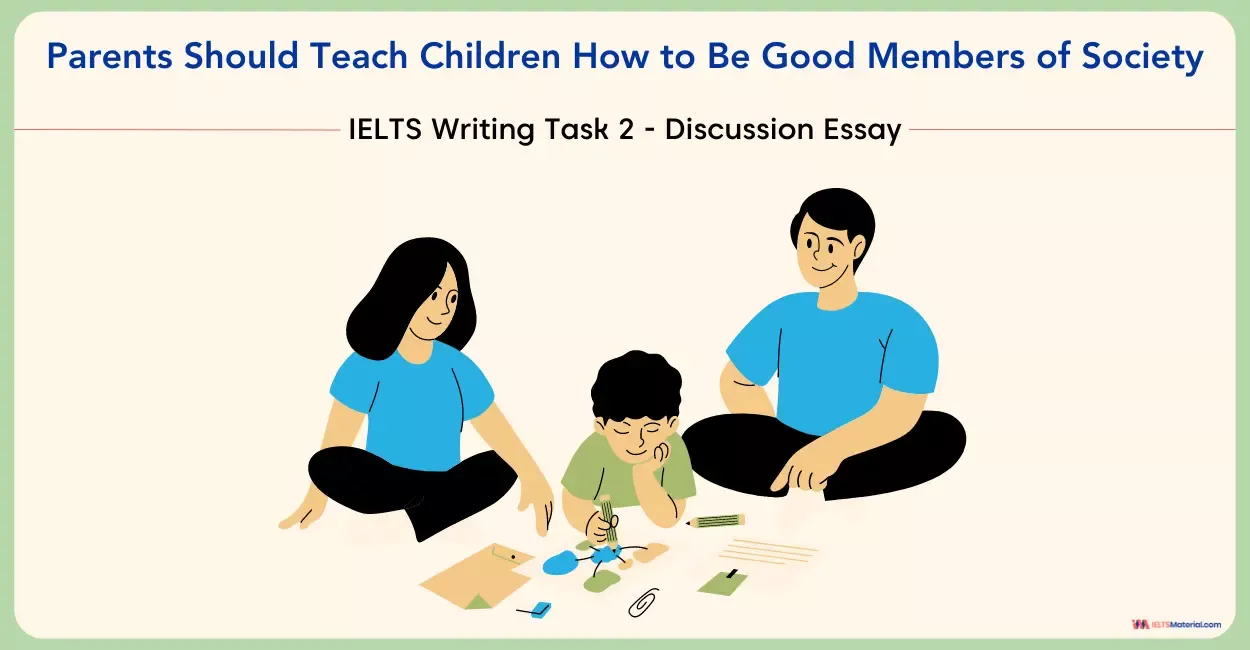IELTS Writing Task 2 Cause/Solution Essay Topic: Juvenile Delinquency
The article discusses an IELTS problem-solution essay, focusing on juvenile delinquency. It explains how to outline the essay, presenting causes such as lack of supervision and negative media influence, and suggests solutions.
Table of Contents
IELTS Writing Prediction Questions for 2024
One of the various types of essays that can be asked in the IELTS Writing Task 2 is a problem solution essay. IELTS problem solution essay requires candidates to talk about a specific problem or its causes and suggest possible solutions to the same. The problem-solution essay topics like Juvenile Delinquency are based on real-life situations and issues and are essential to be familiar with the pattern of the essay topics in order to perform well in Writing Task 2. If you want to practise regularly, check out the Writing Task 2 practice tests.
Given below is an example of a problem & solution essay. Let’s understand how to frame the essay from the ideas we have.
In some countries, a high proportion of criminal acts are committed by teenagers. Why has this happened? What can be done to deal with this?
Outline
Essay Type
Cause solution Essay
Introduction
- Give insight about the topic and elaborate briefly.
- Give prelude to what can be expected in the essay
Body
- Paragraph 1: Cause
(Without supervision from parents or caregivers, children’s extreme behaviours such as aggression, hostility or defiance are given free rein to develop in their later lives. In addition, there is a direct correlation between the lack of engagement in educational activities and serious criminal offending in children.) - Paragraph 2: Solution
(The better cure for young criminals is rehabilitation. Throughout education and training, the youth can realise their wrongful actions and be given opportunities to turn over a new leaf and transform themselves into useful members of society later in life.)
Conclusion
Reparaphrase the question and end up with the solution stated.
Band 8 Sample Essay
Today, youth crime is rife. Theft, burglary or even murder are now committed by people of younger and younger ages. The aim of this essay is to investigate the factors responsible for the increase in juvenile delinquency and put forward a number of ways to appropriately punish young offenders.
It is observed that extreme behaviours are exhibited by most children from dysfunctional families. Without supervision from parents or caregivers, children’s extreme behaviours such as aggression, hostility or defiance are given free rein to develop in their later lives. In addition, there is a direct correlation between the lack of engagement in educational activities and serious criminal offending in children. Out of boredom, children befriend antisocial peers and will gradually copy their behaviours. Media also plays an enormous role in shaping children’s criminality. For example, games such as grand theft auto can desensitise younger players to extreme acts of violence and cruelty, encourage them to commit crimes while giving them the impression that it is morally acceptable to do so.
Imprisonment is often cited as a way to punish juvenile offenders. However, it is my view that this approach can produce extremely destructive effects. The youth can potentially be victims of physical or sexual abuse from older prisoners, as well as can adopt their negative behaviours. I feel that the better cure for young criminals is rehabilitation. Throughout education and training, the youth can realise their wrongful actions and be given opportunities to turn over a new leaf and transform themselves into useful members of society later in life.
There are reasons to explain why today antisocial behaviour among the youth nowadays has reached a historically unprecedented high and rehabilitation is the answer for this.
Band 9 Sample Essay
It has been pervadingly seen that the crimes by the hands of juveniles, due to various reasons, is seen a menace to society and more so, their conditioning. This essay discusses the causes of this and the possible solutions to cope up with this increasing plight.
It is generally observed that such heinous offences by teenagers, which are today hysterically expanding, are because of the clamorous and derisive environment children are being subjected to. The environment in which they thrive and prosper is somehow the most pronounced cause of such misdemeanour. Reportedly, the type of personality one develops is often predetermined by the parenting, and upbringing one goes through in childhood. Secondly, the prospering technology and its directly proportional deleterious side effects, which includes unsupervised and disproportional exposure to provocative and misleading content. Some online games promote burglary, while some might cause one to have a belligerent attitude. Misleading television shows and graphical content percolates in the innocent and malleable mindsets of the children, thereby causing them to commit such serious actions.
A possible remedy to this starts right away from the way children are brought up. Being extra vigilant while they are around and cutting the unnecessary vulnerability of being influenced in the wrong helps children a great deal. Digital usage is understandably ineludible. However, in the supervision of a responsible adult and the perusal of them, the risks and perils of children being guided in a corrosive way are palliated to a much greater extent. Schools should alarmingly and intensively monitor the children who are being browbeaten by the hands of bullies, as surveys have often suggested that those are the children who are usually more susceptible to committing a crime.
Therefore, it could be summed up that though it is undoubtedly a problem to society as a whole, by proper monitoring, parenting, and supervision, juvenile misconduct could be largely contained and alleviated.
Vocabulary
Have a look at the IELTS Vocabulary for the sample answer on the essay topic 'Juvenile Delinquency'.
- Youth crime is rife: Youth crime is very common.
- Juvenile delinquency: act of crime committed by the young
- Defiance (n.): behaviour in which you refuse to obey others
- Aggression (n.): behaviour that is threatening or involves harm
- To be given free rein to develop: go uncontrolled.
- Desensitise (v.): cause people to experience emotion less strongly than before.
- Out of boredom: Because they are bored
- To produce extremely destructive effects: have bad results.
- Wrongful actions: Actions which are unfair and illegal
- To turn over a new leaf: To become another person.
- Rehabilitation (n.): the act of returning someone to a good condition, normal life.
Here are some related topics for you to practice:
- The problem of juvenile delinquency is increasing day by day. What are the reasons for this? Suggest a few solutions.
- It is often thought that the increase in juvenile crime can be attributed to violence in the media. What do you think is the reason for this phenomenon? Suggest some measures to combat this problem.
- In many countries, the age of criminals is getting lower. Provide reasons for this problem, along with solutions. Support your arguments with examples.
Get Evaluated for FREE:
Do you have an essay on this topic? Please post it in the comments section. One of our IELTS trainers will evaluate your essay from an examiner’s point of view and reply to the comment. This service is completely FREE of cost.
More Writing Task 2 Essay Topics
- Every year several languages die out
- Some People Think That Parents Should Teach Children How to be Good Members of Society
- Happiness is considered very important in life
- In some countries the average weight of people is increasing
- Young people are encouraged to work or travel for a year between finishing high school
- Research Indicates That the Characteristics We are Born With Have Much More Influence On Our Personality
Also check :
Practice IELTS Writing Task 2 based on Essay types
Effective IELTS Essay Connectors for Writing Task 2 & Task 1
Explore other Problem Solution Essays

Janice Thompson

Recent Articles


Raajdeep Saha
Kasturika Samanta

Akanksha Tripathi





Post your Comments
2 Comments